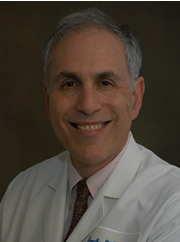Jonathan Zenilman Receiving ASTDA Career Service Award
 Jonathan Zenilman, MD, chief of the Infectious Diseases Division at Johns Hopkins Bayview Medical Center and professor of Medicine at Johns Hopkins School of Medicine, with a joint appointment in the Johns Hopkins Bloomberg School of Public Health, will this week receive the Distinguished Career Award from the American Sexually Transmitted Diseases Association.
Jonathan Zenilman, MD, chief of the Infectious Diseases Division at Johns Hopkins Bayview Medical Center and professor of Medicine at Johns Hopkins School of Medicine, with a joint appointment in the Johns Hopkins Bloomberg School of Public Health, will this week receive the Distinguished Career Award from the American Sexually Transmitted Diseases Association.
ASTDA said it is citing Zenilman for having made “major research contributions” in STD epidemiology, antimicrobial resistance and behavioral research.
The award, ASTDA’s most prestigious, recognizes an honoree’s contributions over time in STD research and prevention. Zenilman served as ASTDA’s president from 2003 to 2007.
Zenilman’s current research involves being principal investigator in a Phase I clinical trial unit for therapeutics against infectious diseases and co-investigator of a comparative effectiveness review of treatment of chronic venous stasis ulcers, including dressings, antimicrobials and surgical options.
In 2011, Zenilman was appointed by the White House to the Presidential Commission for the Study of Bioethical Issues where he served as a technical consultant.
In the 1990s, Zenilman served as clinical director of the Baltimore City Health Department’s STD program. He worked previously for the Centers for Disease Control and Prevention, studying gonorrhea outbreaks. In his Baltimore position, Zenilman’s team was the first to do HIV primary care in the STD clinic. Patients included those hard to treat, among them prisoners. He also has worked to prevent STDs with patients in Africa, Thailand and Israel.
Zenilman said he is gratified by the award because it represents his body of work as seen by his colleagues. “It means that my work has really had an impact on people’s lives around the world, developing new diagnostics and figuring out what the problems are. It’s also a wonderful validation of my students’ work; it’s not just me.”
Attitudinal changes regarding STDs have come a long way in 30 years, something that heartens Zenilman. While stigmas remain, “it’s not what it once was,” and treatment for gonorrhea, chlamydia and even HIV is much more common, he said.
“I was an intern at a time when people with HIV came to the hospital and just died,” said Zenilman. “The fact that you can walk into a clinic, get a rapid HIV test with very high accuracy and get a diagnosis within 20 minutes – that’s really amazing.”
Zenilman will receive the award on July 17 at the 2013 STI and AIDS World Congress, which will be held in Vienna, Austria.
Johns Hopkins Bloomberg School of Public Health media contact: Tim Parsons at 410-955-7619 or tmparson@jhsph.edu.
